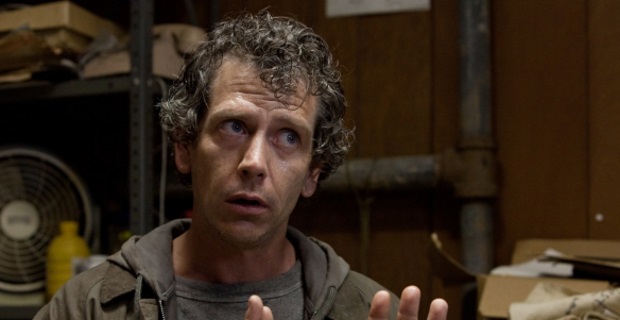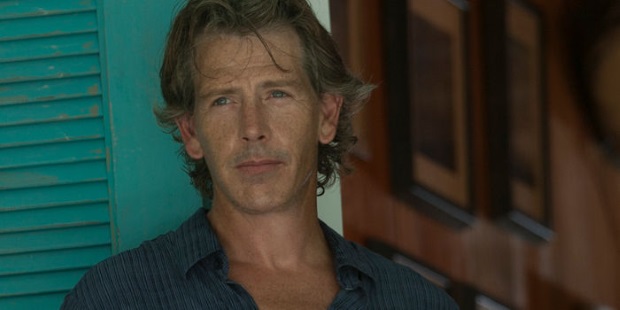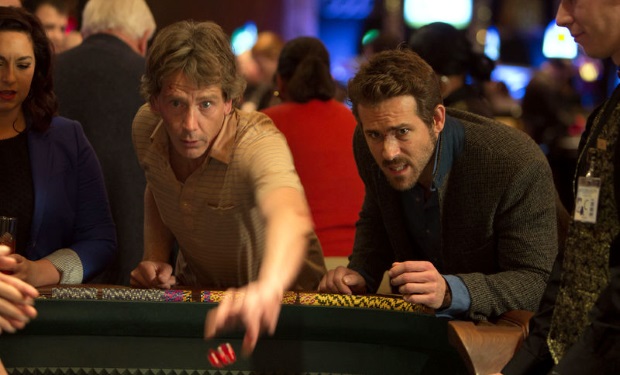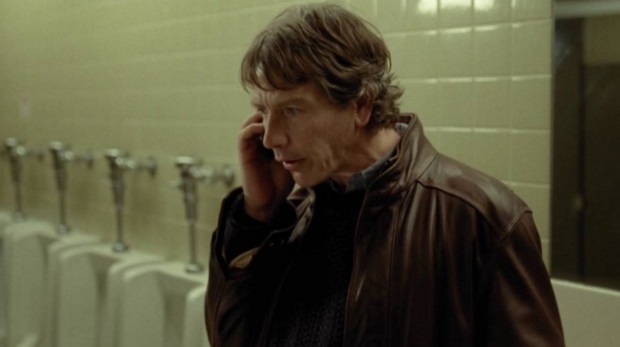Ben Mendelsohn: the best actor flying under people’s radars
Ben Mendelsohn might just be the best actor working in US film today, who isn't appearing on people's 'best of' lists...
You won’t find Ben Mendelsohn making many ‘best contemporary actors’ listicles. Places on those, you see, are reserved for the likes of Hardy, Fassbender, Gosling, Bale; because when we debate the best actors working today, we tend to talk in stars, in leads, typically leaving the supporting artists and the character actors off the list. Not that Mendelsohn is famous enough to be part of the mainstream version of that conversation anyway.
Pre-Star Wars spin-off Rogue One, in which he’ll play the villain, Ben Mendelsohn remains more of a face than a name. Nonetheless: Mendelsohn has worked alongside each of the aforementioned leading men – as victim, pursuer, friend, and foe, respectively – and has arguably been more impressive than them all.
Something of a minor star in his native Australia since breaking out in 1987’s The Year My Voice Broke, Ben Mendelsohn didn’t really register on Hollywood’s radar until David Michod’s mini crime epic Animal Kingdom in 2010. In it Mendelsohn plays Andrew ‘Pope’ Cody, the eldest brother of a Melbourne crime family recently out of hiding and looking to resume a life of disrepute. It’s obvious how this became Mendelsohn’s calling card: up against better-knowns Guy Pearce and Joel Edgerton – no slouches themselves – Mendelsohn is fearsomely superior, rendering Pope a sociopathic blank whose moral core was apparently ruptured from birth.

In the half-decade since Animal Kingdom brought him to wider attention, Ben Mendelsohn has come to work under an array of great contemporary filmmakers: Ridley Scott, Christopher Nolan, Andrew Dominik, Derek Cianfrance. For them and others, across more than a dozen films, Mendelsohn has, since Kingdom, taken to specialising in a certain kind of scumbag: slimy but oddly charming or charismatic, a raspy orator who’s often a way with words.
He’s not quite a physical chameleon – whether he’s clean-cut and suited as The Dark Knight Rises’ treacherous Daggett, or sun-baked and lank-haired as Bloodline’s Danny Rayburn, Mendelsohn can’t help but always look more or less the same. Even limited by his inescapable outward Mendelsohn-ness, however, no one performance from the actor since 2010 has been alike. For some actors, changes role-to-role happen superficially; for Mendelsohn, the transformation occurs internally.
The range displayed by the man has been incredible. As The Place Beyond The Pines’ petty criminal Robin, Mendelsohn’s a borderline-eccentric with a latent manipulative streak; as Killing Them Softly’s heroin addict deadbeat Russell, he’s a dopey, garrulous screw-up; as Starred Up’s Neville Love, he’s a jailbird suffocating a natural paternal extinct towards his similarly banged-up son after years of brutalising incarceration. These could all basically be classified as bad men, but for Mendelsohn evidently there’s no character who can be dismissed as irredeemable. For him, there’s always a reason the bad got to be bad. In Netflix’s Bloodline, for example, Mendelsohn plays Danny as a destructive, self-loathing manchild desperately trying to make those around him feel misery because it’s all the character’s known since he was a boy.

The appeal of Ben Mendelsohn isn’t that he’s Hollywood attractive or an expert at the publicity game. In interviews he’s awkward and fidgety, and he looks real-world 46, not movie 46. He’s the same age as his Killer Elite co-star Jason Statham, but Mendelsohn in contrast wears the lines and wear of someone who’d missed the life of luxury up until he started being handed sweet movie gigs five years ago. The face is weathered, the hair is tangled and greying, the teeth aren’t unnaturally whitened. He’s not outwardly unappealing, and the charisma alone is attractive, but rarefied beauty isn’t what’s getting Mendelsohn jobs on some of the biggest movies around. The appeal of this man to those who’ve come to admire him must just be that he can act.
Now, in his 40s, Mendelsohn has popped up in his first lead role.
In Ryan Fleck and Anna Boden’s New Hollywood-esque travelogue Mississippi Grind, Mendelsohn plays Gerry, an obsessive gambler in severe financial stress travelling south to New Orleans for a potentially life-altering card game. He brings with him Ryan Reynolds’ fellow punter Curtis as a ‘good luck charm’, Gerry failing to see that it’s his more fundamental addiction to self-destruction that unfailingly stymies him. He borrows money from sharks, gambles it away, borrows more, and loses all over again. Then he steals, and blows that too. All of which might suggest Gerry is another of Mendelsohn’s scumbags, but no: a small guest spot on TV’s Girls as Jessa’s bohemian father aside, Gerry’s the furthest Mendelsohn’s been from villainy since American cinema adopted him as its own half a decade ago.

Mendelsohn’s rather at his most everyman as Gerry, sympathetic even as he’s slyly dipping into his ex-wife’s sock drawer for poker money. He’s a guy urged to commit bad deeds by his compulsion, a puppy dog who rarely raises his voice and doesn’t fight back, far removed from the likes of Pope Cody or his unhinged Fraser from Kevin Macdonald’s Black Sea, two men no one would ever dare pick a fight with in the first place. You get completely why Mendelsohn’s the lead in Grind, and why Ryan Reynolds – though in very fine form himself – isn’t. It’s less understandable why it’s taken this long for anyone to give Mendelsohn a starring role, when Reynolds has suffered numerous critical and box office disasters through the years only to retain consistent leading man status.
The answer’s probably all in the looks. Like fellow luminaries of modern American character acting Michael Shannon and Paul Giamatti, Ben Mendelsohn is blessed with talent but limited by his own appearance. Unlike Fassbender, Hardy, Bale et al, Mendelsohn just isn’t typically attractive enough to become a major headliner. You get the feeling that if they were around in the 70s, a time when Sutherland, Hackman, Dern – fascinating faces all of them, but hardly oil paintings in the traditional sense – were the leads, the likes of Ben Mendelsohn and Michael Shannon would have had the room to become fully-fledged stars. As it stands, it’s for the odd independent production – Mississippi Grind for Mendelsohn, The Iceman for Shannon – to on occasion promote such worthy talents to lead.

Perhaps fully aware of his career limitations, Mendelsohn takes the opportunity to give his all in Mississippi Grind. He gives one of the performances of the year, proving once and for all that he belongs as a film’s focal point. For now though, he’ll go back to support, in Rogue One and the upcoming drama Blackbird. Maybe things will change for Mendelsohn: Philip Seymour Hoffman was a rare exception to the Hollywood rule that talent must necessarily go hand-in-hand with beauty in order for an actor to thrive as a leading man. Considering it took 13 years for Hoffman to become a legitimate headline star after his first breakout, we might have Ben Mendelsohn’s name up in lights by 2023.
Maybe Mendelsohn for now belongs where he is: relatively unknown to mainstream crowds and free to make magic without the added pressure of public scrutiny. Philip Seymour Hoffman had his best years when audiences by-and-large didn’t know who he was, and filmmakers were tactically casting him in small but pivotal roles like a devastating secret weapon. Like Hoffman before him, as a supporting artist Ben Mendelsohn is currently displaying more talent than most bona fide stars. In his heyday, Philip Seymour Hoffman was the best actor in the world – it just so happened that most people didn’t even know who he was. With Hoffman gone, maybe Ben Mendelsohn now warrants that description.
Follow our Twitter feed for faster news and bad jokes right here. And be our Facebook chum here.